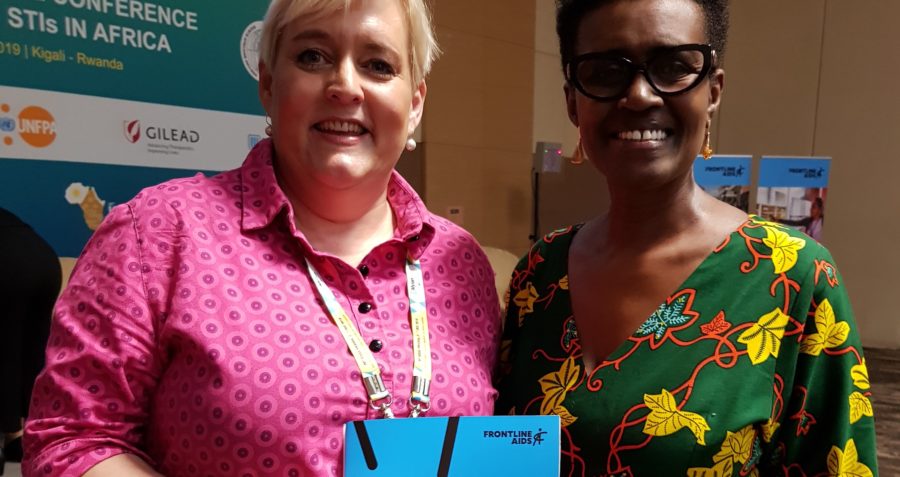AIDS: a struggle we must win
 © Frontline AIDS
© Frontline AIDS
Nothing in life comes close to the anguish of seeing someone you love dying. It is a pain that is both sharp and piercing but at the same time heavy and dull.
We both know this pain all too well, because we have both lost people very close to us to AIDS. We have seen healthy, happy loved ones decline as one infection after another attacks their immune system. Eventually these attacks become too much and their bodies, once filled with life and laughter, are overwhelmed. We have both felt that momentary sense of relief that our loved one’s suffering has finally come to an end, before the sorrow and emptiness that ultimately are left behind.
We are not unique in our sadness. Last year, 770,000 people lost their lives to AIDS-related illnesses. Behind that number are sisters and brothers, sons and daughters. Children grow up with fading memories of the parent they lost. Siblings carry on through life but find themselves coming back again and again to moments with their cherished brother or sister.
That this is still happening makes us angry. We are angry too because there is a misconception that AIDS is almost over. This misconception is driving complacency, and it is costing lives.
Nowhere is this complacency more visible than in HIV prevention. In 2018, an estimated 1.7 million people were newly infected with HIV. There is currently no cure, and although antiretroviral treatment means that HIV has gone from being a near-term death sentence to a chronic illness, in many countries access to the same effective treatment is by no means guaranteed. Prevention is by far the best choice.
But choice suggests a world without stigma, discrimination or violence. A world where all women and girls decide when they have sex, and who with. Where a gay man can access HIV prevention services without fear of being humiliated and turned away – or worse. Where a person who uses drugs is supported with access to sterile equipment such as needles and syringes, rather than being sent to prison or a compulsory detoxification camp.
People such as these are on the frontline of the HIV prevention crisis. Of the 1.7 million new infections last year, more than half were among key populations – men who have sex with men; people who use drugs; sex workers; transgender people; and people in prison – and their sexual partners. Every week, around 6,000 young women become infected with HIV. Age restrictions which prevent young people from accessing HIV prevention, and laws that criminalise people most affected by HIV, are among the biggest barriers to ending AIDS.
So if we want to win this struggle, we need political leaders to be a lot braver. We need them to challenge the social and gender norms that make young women and key populations so vulnerable to HIV infection, and to stand up against the repressive laws that stop them from accessing prevention and treatment. We need them to innovate, to disrupt, and to lead the way in fighting for the human rights – and for the very lives – of those on the margins.
But we need to look at ourselves too. We are part of an AIDS response that has got stuck. We need to be better at speaking truth, even in difficult circumstances. We need to unlock the barriers to ending AIDS, from human rights violations to harmful norms, and to invest in innovative solutions, as well as in economic and educational opportunities and mental health services for people living with HIV. Last of all recognising that we do not have all the answers; we need to build a sustainable future by developing a new generation of leaders and activists to drive the next stage of the epidemic response.
No single person or organisation can end AIDS alone but if we work together, we can ensure that those on the frontline get the support they need. AIDS has taken far too many of the people we love already and caused too much pain for those of us left behind. To honour our loved ones, and all who have died as a result of the epidemic, we are committed to ensuring that our two organisations work together to win this struggle and finally secure a future free from AIDS for everyone, everywhere.
Christine Stegling is the Executive Director of Frontline AIDS and Winnie Byanyima is the Executive Director of UNAIDS.
To find out more about how Frontline AIDS is working towards a future free from AIDS for everyone, everywhere, see our Global Plan of Action
Tags
HIV prevention


